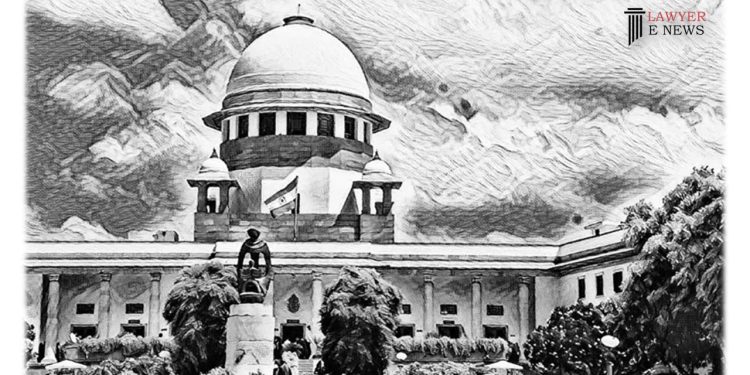-
by Admin
15 February 2026 2:36 AM



On 17 April 2023, Supreme Court in a recent judgement, title SIJU KURIAN Vs STATE OF KARNATAKA, has stated that the High Court has the power to re-appraise evidence and conclusions drawn by the Trial Court and may interfere with the findings of the Trial Court and/or reverse the finding of the Trial Court if the judgment of the Trial Court is perverse and contrary to the evidence on record. The Appellate court has full power to review, reappreciate and reconsider the evidence upon which the order of acquittal is founded, and may reach its own conclusion, both on questions of fact and of law. The Court has laid down certain general principles regarding the powers of the Appellate court while dealing with an appeal against an order of acquittal and has stated that if two reasonable conclusions are possible on the basis of the evidence on record, the Appellate court should not disturb the finding of acquittal recorded by the trial court.
The prosecution's case was that the accused, who was working as a laborer on a farm, murdered the owner of the farm, stole his property, and sold it to others for monetary gain. The accused tried to conceal the evidence by hiding the body and stolen items, and also tried to sell the farm's land by impersonating the deceased's son. The accused was arrested after confessing to the crime and showing the location of the body to the police. The trial court had acquitted the accused, but the High Court reversed the decision and convicted him. The accused was convicted for the offence of murder, theft, misappropriation, and impersonation, and sentenced to life imprisonment and other terms of imprisonment to run concurrently, along with fines. Accused appealed to Supreme Court against the conviction.
Supreme Court has stated that the High Court has the power to re-appraise evidence and conclusions drawn by the Trial Court and may interfere with the findings of the Trial Court and/or reverse the finding of the Trial Court if the judgment of the Trial Court is perverse and contrary to the evidence on record. The Appellate court has full power to review, reappreciate and reconsider the evidence upon which the order of acquittal is founded, and may reach its own conclusion, both on questions of fact and of law. The Court has laid down certain general principles regarding the powers of the Appellate court while dealing with an appeal against an order of acquittal and has stated that if two reasonable conclusions are possible on the basis of the evidence on record, the Appellate court should not disturb the finding of acquittal recorded by the trial court.
Supreme Court further observed that circumstantial evidence relied upon by the State to prove the guilt of the accused for committing the offence cannot be found fault with. The death of Mr. Jose C Kafan being homicide is proved by the post-mortem report and the opinion of the doctor who conducted the post-mortem. The last seen theory is one of the circumstances relied upon by the prosecution to prove the guilt of the accused, and the testimony of witnesses supports this theory. The burden of proving any fact, specially within the knowledge of a person lies upon that person, as per Section 106 of the Evidence Act. The accused failed to provide a satisfactory explanation for being last seen with the deceased, and therefore the last seen theory propounded by the prosecution requires to be accepted.
The Supreme Court examined the admissibility of the accused's confession statement (Ex.P-2) in the case, which was recorded in the presence of an interpreter. The accused disowned the statement and argued that it was not admissible under Section 27 of the Evidence Act due to the unusual method of recording it. However, the Court observed that Section 27 permits the derivative use of custodial statements and that conduct of the accused is also relevant under Section 8 of the Evidence Act. The Court held that if a fact discovered was in the exclusive knowledge of the accused, that part of the voluntary statement leading to the discovery would become admissible under Section 27. The Court also observed that the assistance of an interpreter by the police cannot be faulted with and that the interpreter's evidence had not been discredited during cross-examination. Ex. P-2 could not be ignored or discarded solely because the interpreter did not know how to read and write Malayalam.
Supreme Court observed that the recovery of the dead body at the instance of the accused, based on a voluntary statement, was admissible under Section 27 of the Evidence Act. The confession statement made by the accused was split into its components, and only the portion that led to the discovery of the new fact, which was in the exclusive knowledge of the accused, was admissible. The recovery of articles belonging to the deceased, sold by the accused, also supported the prosecution's case.
The court held that the accused's various statements about the deceased's whereabouts were conflicting and incorrect. The High Court's judgment was based on a sound appreciation of evidence and proper application of the law, and there was no material irregularity in the judgment that called for interference by the Supreme Court. Consequently, the court dismissed the appeal and confirmed the judgment of the High Court.
SIJU KURIAN Vs STATE OF KARNATAKA
